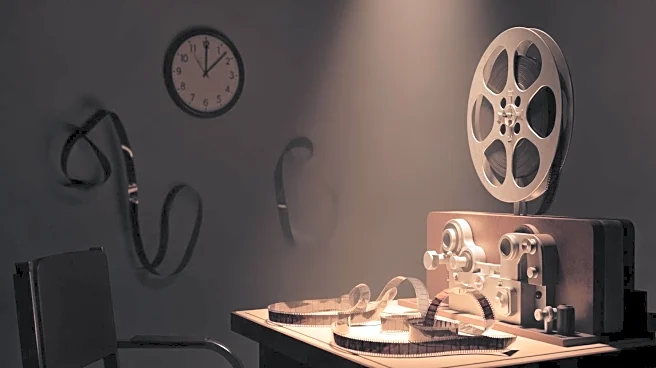What's Happening?
Filmmaker Jafar Panahi, known for his resistance against Iranian government censorship, has completed his latest film, 'It Was Just an Accident,' under clandestine conditions. The film, shot secretly on the
streets of Tehran, explores themes of revenge and forgiveness among former prisoners. Due to the sensitive nature of the production, Panahi's editor, Amir Etminan, worked offline using minimal equipment, including an old MacBook Air, to avoid detection. The editing process was conducted without internet access, and the crew operated without a complete script to mitigate risks of government intervention. The film's narrative centers on a mechanic's assistant, Vahid, who encounters a former prison officer who tortured him, leading to a moral dilemma about revenge.
Why It's Important?
This development highlights the ongoing challenges faced by filmmakers in Iran, where government censorship and surveillance pose significant obstacles to artistic expression. Panahi's ability to produce a film under such restrictive conditions underscores the resilience and creativity of artists working in oppressive environments. The film's themes of revenge and forgiveness resonate with broader societal issues, offering a poignant commentary on the human capacity for mercy over violence. This story also illustrates the lengths to which filmmakers must go to ensure their work reaches audiences, potentially inspiring other artists facing similar challenges.
What's Next?
The film's release may provoke reactions from both the Iranian government and international audiences. It could lead to increased scrutiny of Panahi's work and further censorship attempts by authorities. However, it may also garner support from global human rights organizations and film communities advocating for freedom of expression. The film's themes may spark discussions on the ethics of revenge and forgiveness, influencing cultural and political discourse within and beyond Iran.
Beyond the Headlines
The film's production underlines the ethical and cultural dimensions of creating art in a repressive regime. It raises questions about the role of filmmakers as agents of change and the power of cinema to challenge authoritarian narratives. Panahi's work may contribute to a long-term shift in how Iranian cinema is perceived globally, potentially encouraging more filmmakers to explore sensitive topics despite risks.










